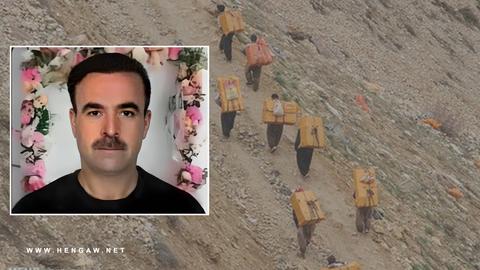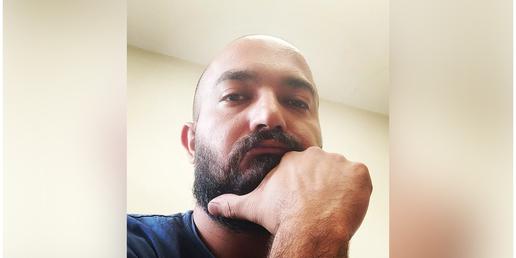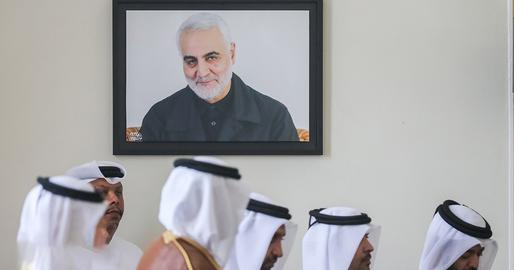In September 2014, then Deputy Secretary of State Wendy Sherman published a 235-page book, titled Not for the Faint of Heart: Lessons in Courage, Power and Persistence, based on her time as the lead US negotiator at the 22-month talks which led to the nuclear deal (JCPOA) signed by Tehran and six world powers in July 2015.
"I think that what I want people to understand is that to do a good negotiation, to really be a good diplomat, you need courage, you need to be able to persist, you need to understand you have to have a team around you," Sherman said in an interview about her book.
Later, an adulterated translation of the book by Mohammad Jamshidi, deputy chief of staff for political affairs to the president of the Islamic Republic, was published under the title Without Fear by a publisher affiliated with the state-run Islamic Republic of Iran Broadcasting (IRIB). At the time when Saeed Jalili was the chief nuclear negotiator with the 5+1 group of countries – the five permanent members of the UN Security plus Germany – Jamshidi was a member of Iran’s negotiating team.
The introduction to the translation is written by Ali Bagheri Kani, a relative of Supreme Leader Ali Khamenei who is now political deputy to the Islamic Republic’s foreign minister, meaning the Iranian counterpart to Sherman and Iran’s current chief nuclear negotiator.
In his introduction, Kani justifies the discrepancy between the original text and the translation by arguing it was meant to prevent promotion of “specific viewpoints” by the writer. The introduction also refers to the JCPOA as a “bitter historical experience” and makes it clear what Kani thinks about Sherman’s book.
However, the discrepancy does not stop with what was taken out of translation. In his translation, Jamshidi has adulterated the text.
Although it seems that the problem with certain parts of the translation stems from his defective mastery of English language, it is quite clear that in a number of places the translator replaced Sherman’s viewpoints with his own. He has even added a subchapter that does not exist in the original text.
In this subchapter, titled The Emotional Effect, Sherman is quoted as saying that she and US Secretary of State John Kerry decided to deceive the Islamic Republic’s negotiating team in order to reach an agreement by pretending to be friendly and by manipulating their emotions, including by crying.
The original text tells a different story about personal issues during the negotiations, especially in the final days of the negotiations: “Women weep when they are furious. Throughout these years I have tried not to do so.”
The final round of negotiations that lasted 27 days at Vienna’s Palais Coburg Hotel was so difficult and unbearable that Sherman compares it to being in a prison.
Sherman writes that one of the final discussions touched upon the writing of the draft of Security Council Resolution 2231 on the lifting of nuclear sanctions on Iran. Nobody had had enough sleep: “As the meeting got underway, the two Iranians accepted one of the formulations I had set up in my chart. The limits they agreed to would meet the requirements of the president. Suddenly I felt we were on the verge of success, where only hours before it had felt hopeless.
“Then [Iran’s chief nuclear negotiator Abbas] Araghchi sat forward. Before he could attend to the outline of the resolution, he said, there was another point that he wanted to discuss. He began to dispute a point that had been previously settled. This was a regular feature of the Iranian negotiating style: just as consensus seemed imminent, something would suddenly resurface to trouble the waters…
“But at that moment I was out of patience. Too much was at stake as we stood at the precipice of a deal. With all that loomed outside the meeting room door, with the work we’d all done to get to this point, I found this last-minute gambit maddening.
“’Abbas, enough,’ I began. ‘You always want more. Here we are past the deadline, facing a Congress soon to go on recess…’”
“I could hear that I had begun to yell, my resentment rising at the Iranian’s willingness, at this hour, to play tactical games. This wasn’t the first time that this had happened to me, but it was certainly the most inconvenient. I don’t know where the wires get crossed in my emotional constitution between fury and weeping. Women learn early in life that it is not socially acceptable to get angry, so maybe my survival instinct throws in another, more disarming emotion to mask my ire. In any case, there was nothing I could do except ignore tears rolling down my face and push forward. I told the Iranians of my own frustration, how their tactics had completely stalled my own plans. 'I have no idea what I will do now, but more importantly, you are risking all we have worked to do.'
"Araghchi and [ negotiator Majid Takht] Ravanchi were stunned. They thought they had learned their way around me, but this weeping, viscerally direct Wendy was a person they had not encountered. For the first time in months of tough negotiations, they were in mute disarray...
"I would never have planned to push back at Araghchi, or any adversary, with a teary venting session. But something in the sincerity of my frustration, the realness of the moment, broke through...
"After a long silence, Araghchi dismissed the objection he had raised. My tears were evidence enough that there was no more give, and we came to agreement on the language for the UN resolution. That tearful reckoning became the final, substantive turn of the Rubik's Cube."
To sum up, Sherman compares the negotiations to the Rubik's Cube and says that her tears were an involuntary reaction to the possibility that negotiations will last longer, but the translation says: “Weeping was the final move toward solving this Rubik's Cube.” In other words, while Sherman says that the shedding of tears was involuntary, the translation presents it as a deliberate act to “deceive” the Iranian negotiators.
Another anecdote distorted in the translation is when Kerry slams the table out of anger and frustration, sending a pen flying across the room toward Araghchi. In their memoirs, both Kerry and Iranian former Foreign Minister Mohammad Javad Zarif mention this incident. The translation of Sherman’s book says the pen hit Araghchi in the face. This fake addition to the story was used at that time by domestic opponents of the JCPOA to humiliate the Iranian negotiating team.
In her book, Sherman writes that months of talks drew her personally closer to Iranian negotiators. For example, during the negotiations, both she and Araghchi became grandparents and they developed a closer personal relationship by showing each other pictures of their grandchildren. This continued even after the negotiations with Araghchi and Sherman exchanging greetings for Christmas and Nowruz, the Persian New Year.
This distorted translation of this part was read on Iranian state TV by Mahmoud Nabavian, an extremist Shia cleric and a member of parliament opposed to the JCPOA. The translator had changed “exchanging greetings” to “exchanging cards” for Christmas and Nowruz.
Translating a book written by a foreign official by a high-ranking official of another country’s presidential staff and then adding an introduction by the deputy foreign minister of that country to reject points made by the book is unusual enough in the worlds of politics and publishing.
But Jamshidi went even further. By altering the original text, making additions to it and attributing these additions to the author, he has created a full-fledged scandal that affected the office of the president of the Islamic Republic, especially in a world of instant communication where such fakeries in publicly available texts cannot remain a secret.
visit the accountability section
In this section of Iran Wire, you can contact the officials and launch your campaign for various problems





























comments